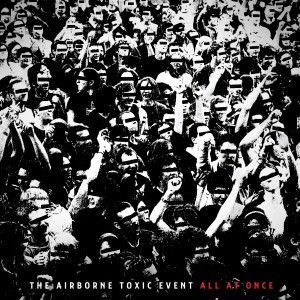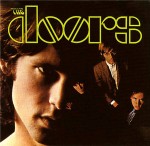No one ever asked them to change their name, let alone change the world of music.
They lived their lives, many of them tragic, against the norm, standing up for what they believed in – living against the grain.
Songwriters hailing from the City of Angels, from rock n’ roll heroes to punk rock exhibitionists to hip-hop icons, they transformed their genres and eras; their voices moved politics and social causes, and continues to influence American music today.

Rock lore tells a story of the defining moment that separated The Doors from other bands of its era. The yarn tells of the band rejecting network producers’ orders to change the lyric, “Girl, we couldn’t get much higher,” from their hit single “Light My Fire” for the family-based audience of “The Ed Sullivan Show.” The band agreed, but before they went on, frontman Jim Morrison said,“We’re not changing a word.”
On stage in leather pants and exuding a mournful presence, the theater arts alumnus let the truth come pouring out when he sang the words unaltered. As producers and Ed Sullivan himself became irate, Morrison subsequently went into the chorus screaming the word “fire,” as if the culture of American popular music had been set ablaze. The Doors was against the grain.
The same spirit that set The Doors apart in the ’60s continues to be reinvented by bands such as The Strokes, Young the Giant and the Silversun Pickups. Since its debut album in 2008, The Airborne Toxic Event has begun to gain popular and critical acclaim for its orchestral chaos, dynamic guitars and energetic drums, bringing intelligent and theorized rock music to a rebellious age similar to the one The Doors connected with.
The Doors changed what it meant to be a rock band, something The Airborne Toxic Event has been pushing further with its lineup that includes a classically trained violist. Sounding like nothing else coming out of radio speakers, The Doors captured American and international audiences with its honest music and dogged musicianship. The band played what it wanted to play and sang the words it felt should be sung at a time when popular bands, led by the Beatles, were seen as clean and respectable. Demonstrating this same against-the-grain spirit, The Airborne Toxic Event made the choice to play music vastly alternative to what its musicians were trained in.
The Doors blended a style of ragged hair and unconventional clothing along with a blues-influenced sound. The same sensibility that drove The Doors to revolutionize popular music drives The Airborne Toxic Event today. The Airborne Toxic Event’s third studio album, to be released this spring, is sure to bring the band from a West Coast favorite to a powerful entity of popular music.
Morrison’s lyrics appear nothing like his contemporaries. The gritty, well-read and self-published poet took the band name from Aldous Huxley’s book “The Doors of Perception.” Morrison wrote bitingly truthful words and when he sang them, audiences of teenagers could tell he was not holding anything back. In “The End,” Morrison passionately writes a love song of goodbyes to a generation – “This is the end/ beautiful friend/ This is the end/ My only friend, the end/ …Can you picture what we’ll be/ so limitless and free.”
Similarly, The Airborne Toxic Event’s lyrics are strongly poetic, a trait that comes from member Mikel Jollett’s early career as a novelist. A phenomenal storyteller that gave up being a writer to play music, he writes songs that affect the mind of the listener. As with Morrison’s lyrics, Jollett’s writing seems to emulate the hopelessness and timid joy of the current generation, as in “All I Ever Wanted” – “All I can think is that it must be a kind of rebellion/ to arm your fears like soldiers and slay them.”
Morrison and Jollett, both bright, witty and off-center poets, stand for their generations as alternatives – against the standard, playing the music they choose to, and not asking permission for what they say and how they look.
This tenacity and ambition altered popular music and continues to fuel innovation toward the sounds of personality, honesty and sweet rock ‘n’ roll.
What other bands from the ’60s do you see present in the sound of today’s music?
Email Hornbostel at bhornbostel@media.ucla.edu.

This review ignores that in 1966 the Beatles themselves were going against the grain of what was expected and respectable, as when Lennon’s quote about the Beatles being bigger than Jesus aroused such ire among predominantly southern religious nuts, including the Ku Klux Klan, and with such songs as “Tomorrow Never Knows” and “Strawberry Fields Forever”. The Doors were without question a prominent part of trend of which the Beatles, the Rolling Stones and Bob Dylan were the most prominent, in expanding the possibilities of rock music, particularly in adding theatrical aspects to their concerts and Morrison may be credited with changing the ideal of a front man “rock god” persona in a way that clearly inspired MIck Jagger and Roger Daltrey, among many others, breaking the Elvis Presley mold. But I disagree with the notion that the Doors were entirely unprecedented in popular music in challenging norms in lyrics and music. There was a lot going on from 1965 through 1968 that significantly changed the pop/rock music scene and the Doors were a big part of that but not quite the biggest.